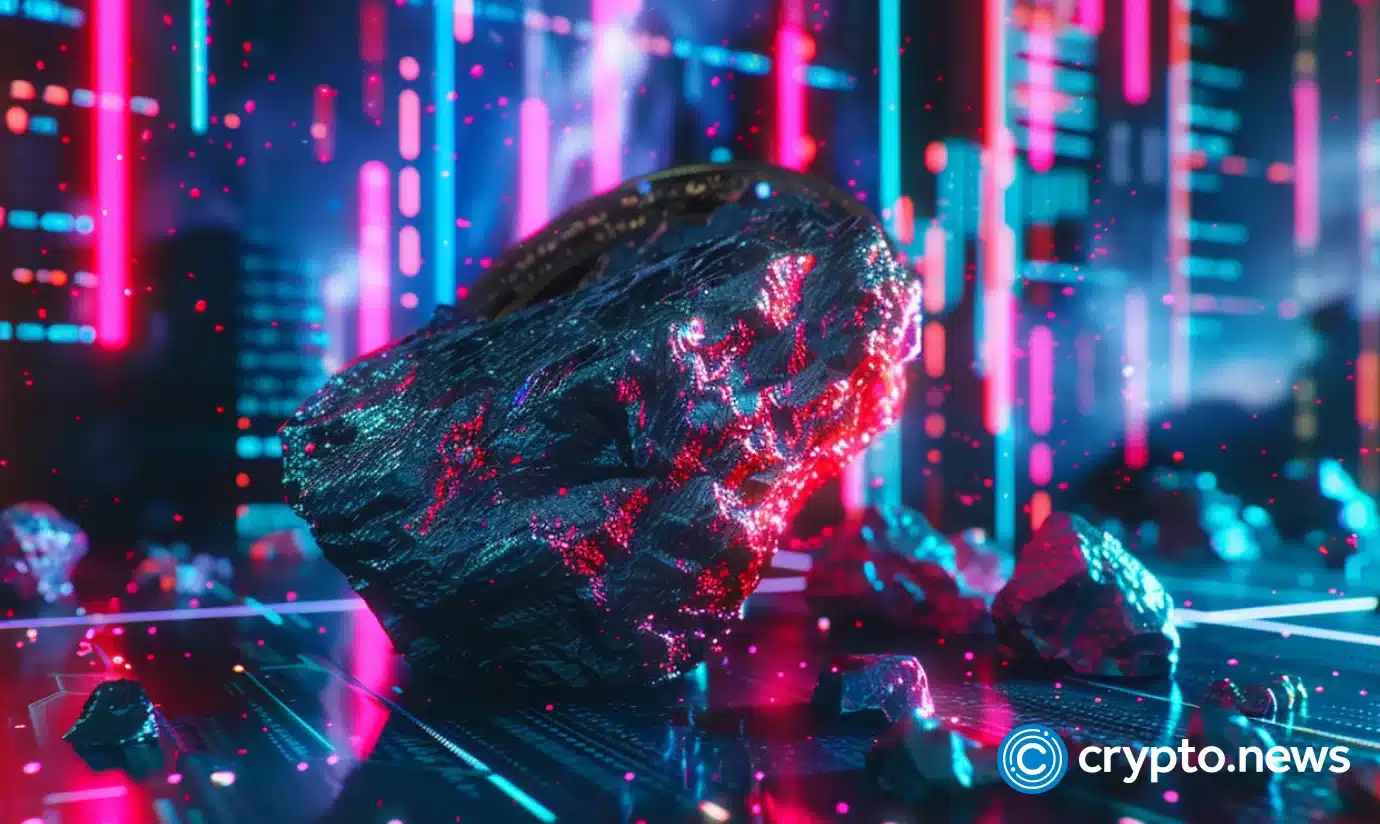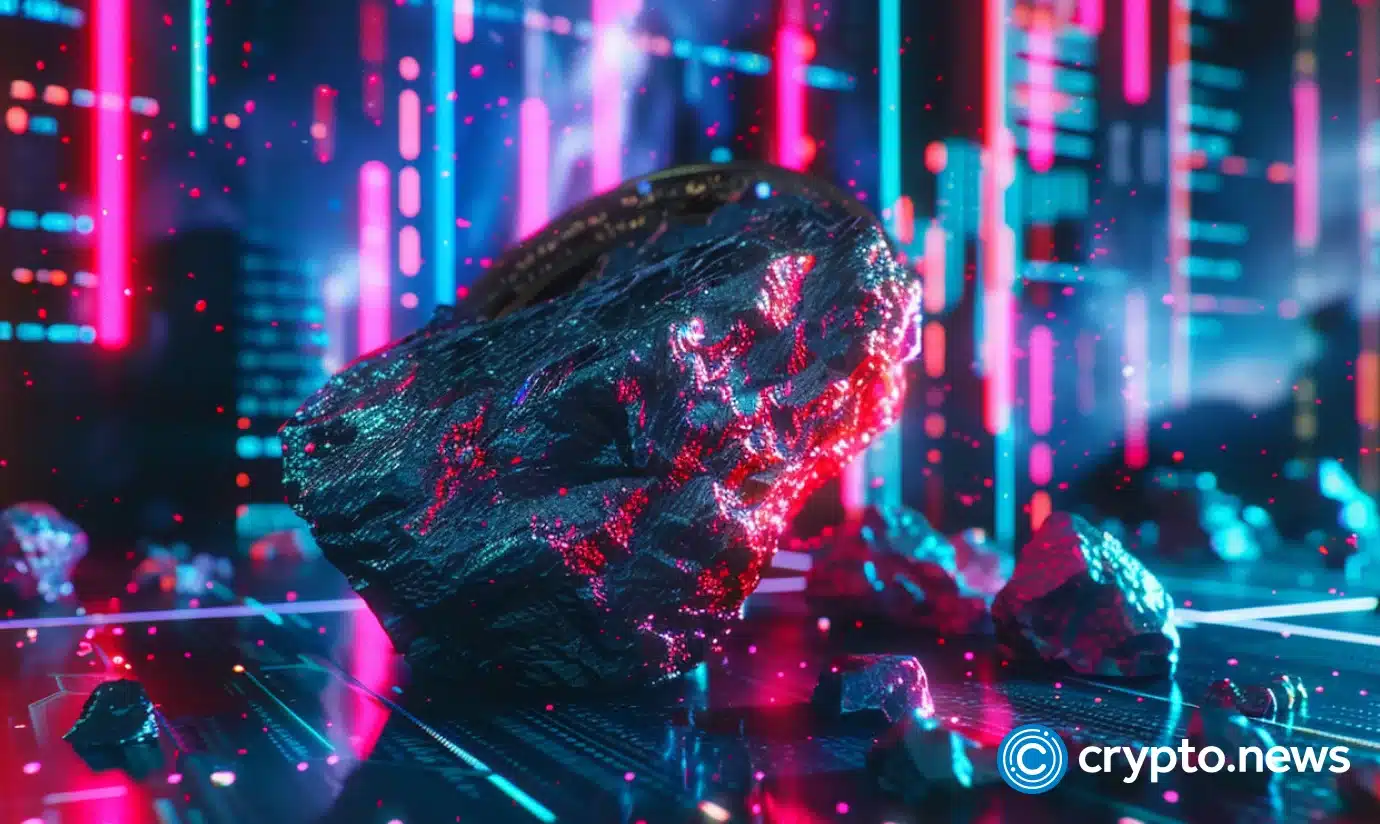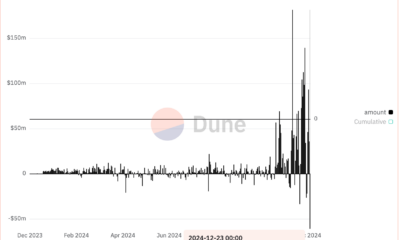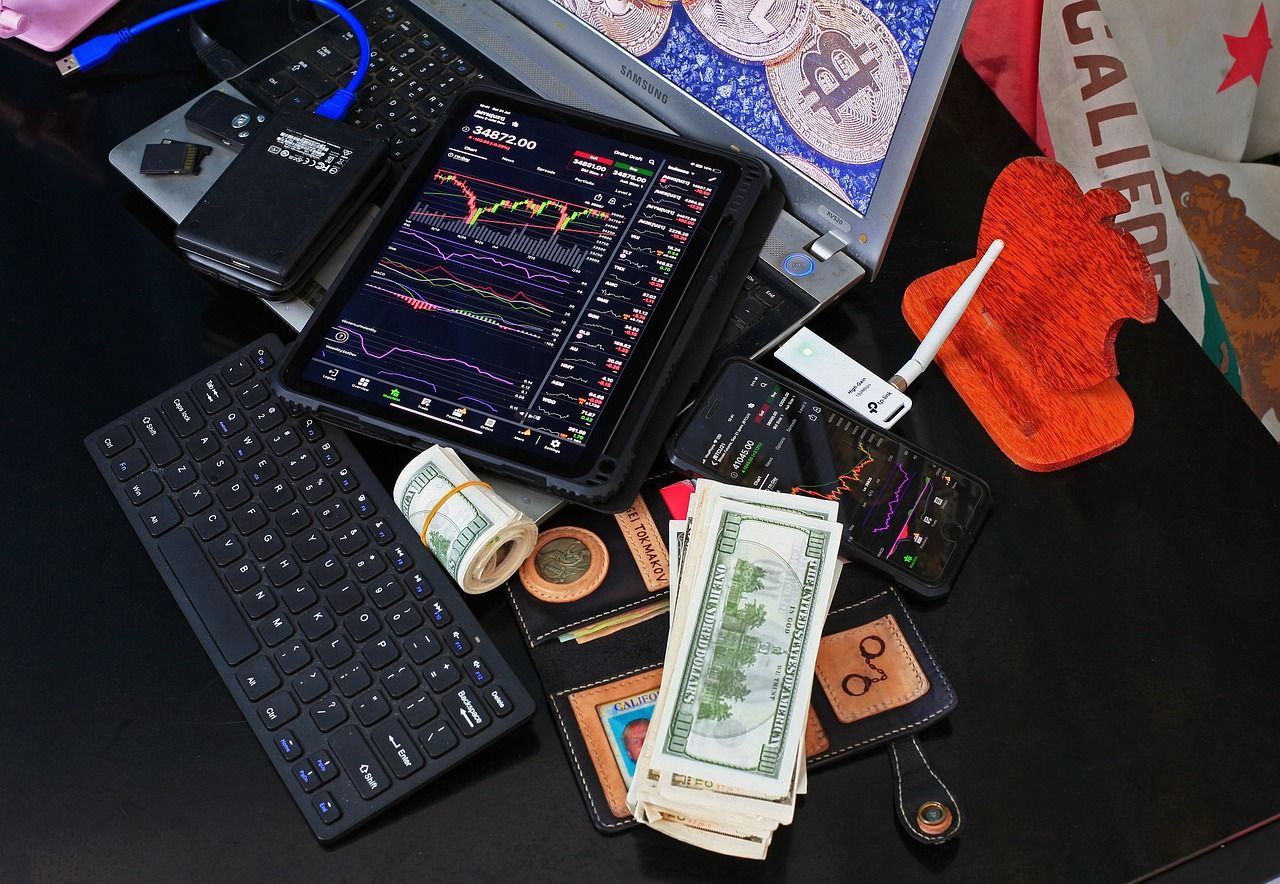blackrock
BlackRock eyes BUIDL token as collateral in crypto derivatives market: report
Published
2 months agoon
By
admin

BlackRock is trying to have its digital money-market token, BUIDL, used as collateral in cryptocurrency derivatives trades.
People familiar with the discussions say the company is ‘in talks’ with major crypto exchanges like Binance, OKX, and Deribit about the possibility, according to Bloomberg.
BUIDL is a token designed for qualified institutional investors, with a minimum investment of $5 million. It is a digital representation of BlackRock’s USD Institutional Digital Liquidity Fund, a money-market fund that invests in U.S. Treasury bills, cash, and other secure instruments.
BUIDL differs from traditional stablecoins like Tether’s USDT (USDT) because it pays interest to holders, which could be attractive to derivatives traders.
Is BlackRock trying to dominate stablecoins and derivatives markets?
Crypto derivatives are financial contracts that derive their value from crypto price movements. Traders use these contracts to speculate on the price of assets like Bitcoin (BTC) without actually buying them. To participate, traders often need to put down collateral, which can be in the form of stablecoins. Tether’s USDT, for example, is commonly used in this role because it maintains a stable value of $1, making it reliable for securing trades.
However, BUIDL’s entry into this space could challenge USDT’s dominance. BlackRock is hoping that more platforms will accept BUIDL as collateral, which could significantly expand its market reach, per Bloomberg.
Prime brokers FalconX and Hidden Road already allow their clients to use BUIDL as collateral, and custodian Komainu recently joined that list. These early adopters include hedge funds and other institutional investors.
Crypto derivatives trading accounted for over 70% of all crypto trading volume in September, with $3 trillion worth of contracts traded that month alone, according to research firm CCData.
That makes derivatives a huge part of the crypto ecosystem, and having BUIDL accepted on major exchanges like Binance and Deribit could position BlackRock as a major player in this market.
Source link
You may like


Most Layer 2 solutions are still struggling with scalability


Here’s why Stellar Price Could Go Parabolic Soon


Perp-Focused HyperLiquid Experiences Record $60M in USDC Net Outflows


Experts say these 3 altcoins will rally 3,000% soon, and XRP isn’t one of them


Robert Kiyosaki Hints At Economic Depression Ahead, What It Means For BTC?


BNB Steadies Above Support: Will Bullish Momentum Return?



Recently, BlackRock released an educational video explaining Bitcoin, which I thought was great—it’s amazing to see Bitcoin being discussed on such a massive platform. But, of course, Bitcoin X (Twitter) had a meltdown over one specific line in the video: “There is no guarantee that Bitcoin’s 21 million supply cap will not be changed.”
HealthRnager from Natural News claimed, “Bitcoin has become far too centralized, and now the wrong people largely control its algorithms. They are TELLING you in advance what they plan to do.”
Now, let me be clear: this is total nonsense. The controversy is overhyped, and the idea that BlackRock would—or even could—change bitcoin’s supply is laughable. The statement in their video is technically true, but it’s just a legal disclaimer. It doesn’t mean BlackRock is plotting to inflate bitcoin’s supply. And even if they were, they don’t have the power to pull it off.
Bitcoin’s 21 million cap is fundamental—it’s not up for debate. The entire Bitcoin ecosystem—miners, developers, and nodes—operates on this core principle. Without it, Bitcoin wouldn’t be Bitcoin. And while BlackRock is a financial giant and holds over 500,000 Bitcoin for its ETF, its influence over Bitcoin is practically nonexistent.
Bitcoin is a proof-of-work (PoW) system, not a proof-of-stake (PoS) system. It doesn’t matter how much bitcoin BlackRock owns; economic nodes hold the real power.
Let’s play devil’s advocate for a second. Say BlackRock tries to propose a protocol change to increase bitcoin’s supply. What happens? The vast network of nodes would simply reject it. Bitcoin’s history proves this. Remember Roger Ver and the Bitcoin Cash fork? He had significant influence and holdings, yet his version of bitcoin became irrelevant because the majority of economic actors didn’t follow him.
If Bitcoin could be controlled by a single entity like BlackRock, it would’ve failed a long time ago. The U.S. government, with its endless money printer, could easily acquire 10% of the supply if that’s all it took to control Bitcoin. But that’s not how Bitcoin works. Its decentralized nature ensures no single entity—no matter how powerful—can dictate its terms.
So, stop worrying about BlackRock “changing” Bitcoin. Their influence has hard limits. Even if they tried to push developers to change the protocol, nodes would reject it. Bitcoin’s decentralization is its greatest strength, and no one—not BlackRock, not Michael Saylor—can change that.
This article is a Take. Opinions expressed are entirely the author’s and do not necessarily reflect those of BTC Inc or Bitcoin Magazine.
Source link
Bitcoin
BlackRock’s New Bitcoin Ad Is A Monumental Paradigm Shift
Published
5 days agoon
December 19, 2024By
admin

Yesterday, BlackRock released a new video aimed at educating people interested in Bitcoin on the asset class.
The video is quite good, honestly. I think they took inspiration from Saifedean Ammous’ book “The Bitcoin Standard,” which discusses the history of money from the beginning of time and how it has changed and evolved throughout history.
Launched in January, IBIT has now topped $50 Billion in assets as investors are increasingly using the ETP to get efficient exposure to bitcoin’s price. Yet many investors are still relatively new to the digital assets space. For those looking to learn more about what bitcoin is… pic.twitter.com/8wh9CW0xYa
— Jay Jacobs (@JayJacobsCFA) December 17, 2024
Seeing this type of educational Bitcoin content from a $11.5 trillion asset manager is something that I think will really resonate with their target audiences.
Watching the video, there was one moment in particular that stood out to me. BlackRock was highlighting where Bitcoin is today and said, “Bitcoin is no longer seen as the radical idea it was 15 years ago. Over 500 million people around the world now use cryptocurrency, with over 50% holding or investing in Bitcoin.”
That right there screams to me that Bitcoin is becoming recognized as a legit and established asset class in the eyes of the financial elite, and then eventually the mainstream.
In the early days, Bitcoin really was such a radical new idea that probably 99% of people could not conceptualize. However, over time, Bitcoin has proven itself time and time again to be a legit asset and people are now interested in embracing this new form of money. It feels like there has been a sincere paradigm shift and that we are slowly, but surely, leaving the point in history where the majority of people think Bitcoin is a scam and bad for any other generic FUD that has already been thoroughly debunked.
With that being said, I’m not saying everyone is on the verge of becoming a bitcoin maximalist or anything, but I do think that more and more people are becoming accepting to the fact that Bitcoin is here to stay and that it’s not going anywhere — which I would think eventually leads to people saying “I should probably own some bitcoin then.”
This isn’t just anyone saying Bitcoin is becoming a legit asset, this is the world’s largest asset manager. BlackRock is putting their reputation behind Bitcoin and projecting confidence in the long-term success of it. And so far it has been an amazing play by them embracing Bitcoin, with their spot Bitcoin ETF being the most successful ETF launch in history.
When they speak highly of a potentially profitable investment, people listen. I think in particular, the wealthy and accredited investors are the first to take notice and advantage of BlackRock’s signalling here. Eventually this will be followed by retail investors.
I believe Bitcoin is set to enter an entirely new paradigm unlike anything we’ve seen before.
This article is a Take. Opinions expressed are entirely the author’s and do not necessarily reflect those of BTC Inc or Bitcoin Magazine.
Source link
Bitcoin
Put Options for BlackRock’s Bitcoin (BTC) ETF at $30, $35 See High Volume – What’s Happening?
Published
1 week agoon
December 16, 2024By
admin
Surging volumes in put options linked to BlackRock’s Nasdaq-listed spot bitcoin ETF (IBIT) could be interpreted as bearish sentiment. That’s not necessarily the case.
On Friday, more than 13,000 contracts of the $30 out-of-the-money (OTM) put option expiring May 16 changed hands as the ETF rose 1.7% to $57.91, according to data from Amberdata. Volume in the $35 put option expiring Jan. 16, 2026, topped 10,000 contracts.
Most of the activity probably stems from market participants looking to generate passive income through “cash-secured put selling” rather than outright purchase of the options as bearish bets, according to Greg Magadini, Amberdata’s director of derivatives.
A put seller, offering insurance against price drops in return for a premium, is obligated to purchase the underlying asset at a predetermined price on or before a specific expiration date. (That’s opposed to the buyer of the put, who has the right but not the obligation to sell the asset.)
That means savvy traders often write OTM puts to acquire the underlying asset at a lower price while pocketing the premium received by selling the put option. They do so by continuously maintaining the cash required to purchase the asset if the owner of the put option exercises their right to sell the asset.
Hence, the strategy is called “cash-secured” selling of puts. In IBIT’s case, sellers of the $35 put expiring in January 2026 will keep the premium if IBIT stays above that level until expiry. If IBIT drops below $35, the put sellers must buy the ETF at that price while keeping the premium received. The sellers of the $30 put expiring in May next year face a similar payoff scenario.
“The $35 Puts for Jan 2026 traded +10k contract with an IV range of 73.52% to 69.94%, VWAP at 70.75% suggests net selling from the street… potentially Cash Secured put selling flows (for traders who missed the rally),” Magadini said in a note shared with CoinDesk.

Saxo Bank’s analyst suggested cash-secured put selling as the preferred strategy in Nvidia early this year.
Calls are pricier than puts
Overall, IBIT call options, which offer an asymmetric upside to buyers, continue to trade pricer than puts.
As of Friday, call-put skews, with maturities ranging from five to 126 days, were positive, signaling relative richness of implied volatility for calls. The bullish sentiment is consistent with the pricing in options tied to bitcoin and trading on Deribit.
On Friday, IBIT recorded a net inflow of $393 million, representing the majority of the total inflow of $428.9 million across the 11 spot ETFs listed in the U.S, according to data tracked by Farside Investors.

Source link

Most Layer 2 solutions are still struggling with scalability

Here’s why Stellar Price Could Go Parabolic Soon

Perp-Focused HyperLiquid Experiences Record $60M in USDC Net Outflows

Experts say these 3 altcoins will rally 3,000% soon, and XRP isn’t one of them

Robert Kiyosaki Hints At Economic Depression Ahead, What It Means For BTC?

BNB Steadies Above Support: Will Bullish Momentum Return?

Metaplanet makes largest Bitcoin bet, acquires nearly 620 BTC

Tron’s Justin Sun Offloads 50% ETH Holdings, Ethereum Price Crash Imminent?

Investors bet on this $0.0013 token destined to leave Cardano and Shiba Inu behind

End of Altcoin Season? Glassnode Co-Founders Warn Alts in Danger of Lagging Behind After Last Week’s Correction

Can Pi Network Price Triple Before 2024 Ends?

XRP’s $5, $10 goals are trending, but this altcoin with 7,400% potential takes the spotlight

CryptoQuant Hails Binance Reserve Amid High Leverage Trading

Trump Picks Bo Hines to Lead Presidential Crypto Council

The introduction of Hydra could see Cardano surpass Ethereum with 100,000 TPS
182267361726451435

Why Did Trump Change His Mind on Bitcoin?

Top Crypto News Headlines of The Week

New U.S. president must bring clarity to crypto regulation, analyst says

Will XRP Price Defend $0.5 Support If SEC Decides to Appeal?

Bitcoin Open-Source Development Takes The Stage In Nashville

Ethereum, Solana touch key levels as Bitcoin spikes

Bitcoin 20% Surge In 3 Weeks Teases Record-Breaking Potential

Ethereum Crash A Buying Opportunity? This Whale Thinks So

Shiba Inu Price Slips 4% as 3500% Burn Rate Surge Fails to Halt Correction

Washington financial watchdog warns of scam involving fake crypto ‘professors’

‘Hamster Kombat’ Airdrop Delayed as Pre-Market Trading for Telegram Game Expands

Citigroup Executive Steps Down To Explore Crypto
Mostbet Güvenilir Mi – Casino Bonus 2024

NoOnes Bitcoin Philosophy: Everyone Eats
Trending

 3 months ago
3 months ago182267361726451435

 Donald Trump5 months ago
Donald Trump5 months agoWhy Did Trump Change His Mind on Bitcoin?

 24/7 Cryptocurrency News4 months ago
24/7 Cryptocurrency News4 months agoTop Crypto News Headlines of The Week

 News4 months ago
News4 months agoNew U.S. president must bring clarity to crypto regulation, analyst says

 Price analysis4 months ago
Price analysis4 months agoWill XRP Price Defend $0.5 Support If SEC Decides to Appeal?

 Opinion5 months ago
Opinion5 months agoBitcoin Open-Source Development Takes The Stage In Nashville

 Bitcoin5 months ago
Bitcoin5 months agoEthereum, Solana touch key levels as Bitcoin spikes

 Bitcoin5 months ago
Bitcoin5 months agoBitcoin 20% Surge In 3 Weeks Teases Record-Breaking Potential



